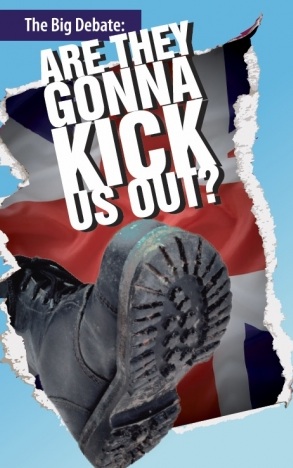Sweden has long been a beacon for some political parties in Europe. Bring up Stockholm’s immigration policies with any center-left politician in the Netherlands, France, or Great Britain, though, and you’ll be met with exasperation and incredulity.
The Swedish minority government has fallen. The far-right Sweden Democrats in essence brought the fresh center-left coalition down over the party’s demands for changes to immigration policies – changes that Prime Minister Stefan Lofven of the Social Democratic Party, and his coalition partner, the Green Party, refused to accept.
Determined not to compromise with parties on the right, Lofven formed a minority government with the Green Party shortly after elections in September. He was opposed by center-right parties who disagree with his socio-economic policies but are generally in alignment concerning refugees and asylum seekers. Not so the Sweden Democrats. The party wholly rejects Sweden’s current asylum policies.
Lofven made another gamble by sticking to the previous government’s liberal policies on asylum, in combination with his new government’s center-left budget. The policy cocktail proved too much to bear, both for the center-right opposition and for the Sweden Democrats. Although the parties generally loathe each other, their vote went against the budget, and it was rejected. Lofven called new elections; yet another gamble, one through which Lofven hopes to finally attain a majority.
This now puts Swedish voters in a bind. Lofven will likely cast the opposition parties as irresponsible, but the minds of many voters will be on immigration, thanks to Sweden Democrats’ move.
A social problem is brewing in Sweden. The country has thus far been very welcoming to refugees from wartorn countries such as Syria. Former Prime Minister Fredrik Reinfeldt roused Swedes when he bluntly stated that Sweden should accept more asylum seekers, regardless of popular opinion. The Scandinavian country, however, seems stuck in the 1990s. It continues to accept refugees from countries with different cultures, but it doesn’t seem to have thought through what to do with them. In 2013, riots hit the Stockholm suburbs, with many cars burnt throughout areas populated by refugees. The main reason: unemployment and frustration.
Unemployment among asylum seekers and second-generation immigrants is rampant, and the economy isn’t providing enough jobs for all Swedes. Immigrants seem to be concentrated in small areas, creating pockets of discontent, much like in France.
This kind of discontent has proven to be fertile ground for populist far-right parties like the FPO in Austria, the Front National in France and the PVV in the Netherlands. Stefan Lofven – and anyone else hoping to win Swedish elections set for March 22, 2015 – would do well to heed the lessons of Western Europe of the past 20 years.

